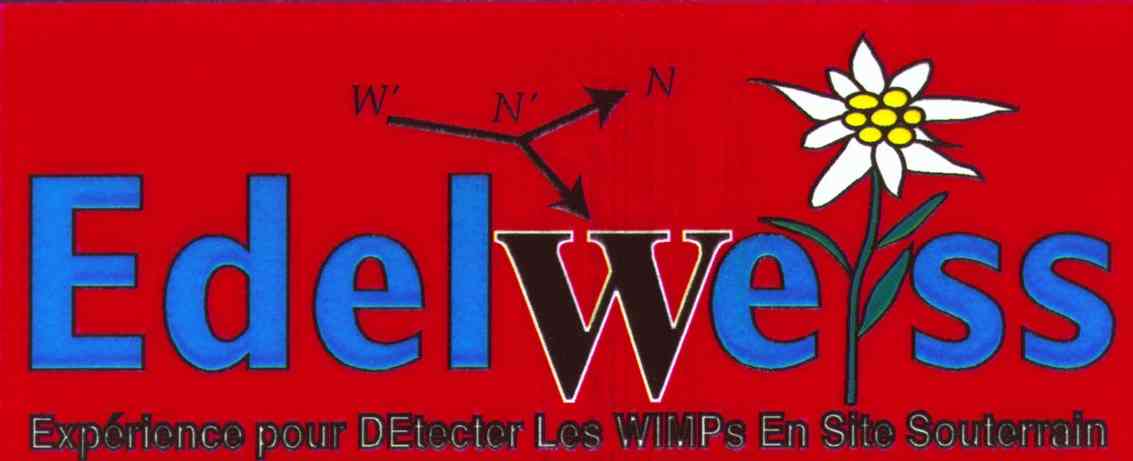Edelweiss (Expérience pour DEtecter Les Wimps En SIte Souterrain) is a cryogenic dark matter search experiment aiming to directly detect the scattering of WIMPs in germanium detectors operating a millikelvin temperature. In these detectors, the majority of the energy deposited by a particle collision in a germanium crystal produces phonons, which produce a thermal signal in an NTD-Ge thermometer on the surface of the crystal. An interaction also produces a large number of electron-hole pairs which produce an ionization signal on electrodes deposited on each side of the crystal.
Comparing the magnitude of the thermal and ionization signals allows an event by event discrimination of electron recoil events (produced by β and γ interactions) from nuclear recoils events (produced by WIMP and neutron interactions). A limitation of early germanium detectors was surface events, where the ionization is substantially reduced, so electron recoil events could be misidentified as nuclear recoils.
This problem is addressed by the latest interdigit detectors, which use a series of concentric ring electrodes, biased at different potentials, to identify surface events.
The Oxford group joined Edelweiss in 2009. We intend to play a full part in the next phase of the experiment. We are adapting the oxrop
data analysis software to analyse Edelweiss data; developing cryogenic cables to readout the detectors, and looking into producing cryogenic phonon scintillation detectors using NTD-Ge thermometers.
More information on Edelweiss can be found on the collaboration
homepage: 

